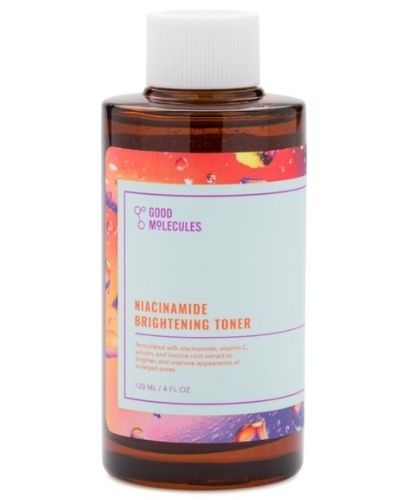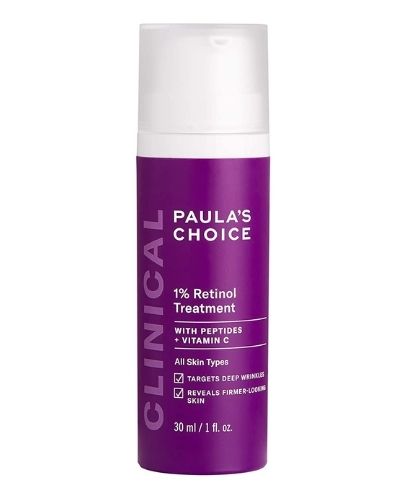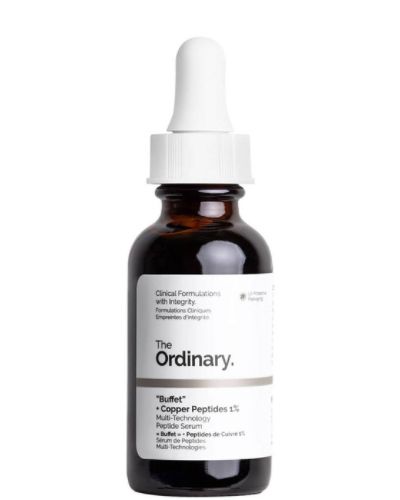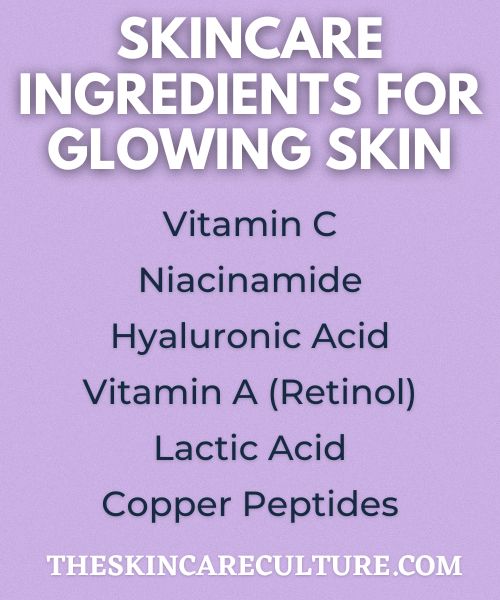Healthy, glowing skin is usually the result of a couple of things, including good care and maintenance with the right products as well as healthy lifestyle habits.
With that said, there are many things that you can do with regard to skincare that will help you achieve that beautiful and healthy glow.
While glowing skin is often just very well hydrated skin, some ingredients can take that glow to the next level.
Therefore, in this article, I will go over the six best ingredients for glowing skin that you should check out right now!

Vitamin C
Vitamin C has many well-recognized effects on the skin and can help address various skin concerns and improve the skin’s appearance.
First of all, vitamin C is a powerful antioxidant, meaning it protects skin cells from damaging free radicals caused by UV rays.
Additionally, vitamin C acts as a reducing agent at various oxidative steps of melanin formation to inhibit melanogenesis, which is the process by which the brown pigment melanin is produced by melanocyte cells in the deepest layer of the epidermis. This means that vitamin C can stop uneven melanin deposition and not only fade existing hyperpigmentation but also prevent darker patches and spots from forming in the first place.
Furthermore, vitamin C is believed to accelerate collagen and elastin production, and while the data that confirms this is weak, it has been noted that vitamin C does, however, improve texture by softening the outermost layers of the skin and making rough areas appear smoother.
Lastly, vitamin C can boost the body’s production of ceramides and other lipids essential for our skin’s health, resulting in softer, suppler skin, a strengthened skin barrier, and an unmatched glow.
Niacinamide

Niacinamide or vitamin B3 is one of the best ingredients to try out if you want healthy, refined, and glowing skin.
But besides being effective for fading hyperpigmentation, niacinamide is also one of the gentlest anti-inflammatory and anti-acne ingredients.
Niacinamide can help reduce or completely prevent acne in some cases by inhibiting lipids in our sebaceous glands that contribute to acne formation while at the same time increasing ceramides which help the skin maintain optimal hydration levels.
This leads us to one of the most useful properties of niacinamide, which is the ability to improve epidermal barrier function by reducing trans-epidermal water loss and increasing the skin’s resistance to potentially harmful pathogens.
Once your skin barrier is strengthened, your skin will be more hydrated and will have an easier time dealing with other issues such as redness and sensitivity, but it will also be more resistant to irritation and inflammatory conditions such as acne and rosacea.
RELATED: Best Niacinamide Serums Under $30.
Hyaluronic Acid
Hyaluronic acid is a common ingredient found in many skincare products, from cleansers to moisturizers and even sunscreens; however, it works best when in a serum form.
It belongs to a group of compounds known as glycosaminoglycans, and it’s also naturally present in our skin. It’s essentially a very large sugar molecule with a gel-like consistency to keep the skin soft, plump, and hydrated.
In addition to keeping our skin plump and hydrated, hyaluronic acid also helps improve signs of aging, such as fine lines and wrinkles.
This is logical because hyaluronic acid levels in our skin deplete as we age, so adding some through topical products can improve the signs of aging, which are brought on by the loss of hyaluronic acid in the first place.
Vitamin A (Retinol)

Vitamin A is your one-stop ingredient for glowy skin.
This powerful antioxidant can help target every skin concern you might be dealing with, from hyperpigmentation and signs of aging all the way to moderate and severe acne.
Vitamin A derivatives which are usually what you will find in over-the-counter and prescription products such as retinol and retinoic acid increase cellular turnover, which helps promote a clearer, brighter, and more uniform complexion.
Retinol has also been found to reduce post-inflammatory hyperpigmentation and post-inflammatory redness, as well as pitted scarring left from severe acne, which is something no other ingredient does.
Lactic Acid
Lactic acid is an exfoliating acid that belongs to alpha-hydroxy acids (AHAs).
This ingredient is derived from sour milk or sugar-rich foods, and it’s a water-soluble substance that possesses larger molecules, making it slightly different than other AHAs, for example, glycolic acid.
Due to its large molecules, lactic acid won’t penetrate deeper into the skin and will instead work on the surface, which means it will provide lighter exfoliation, making it more suitable for sensitive skins.
Lactic acid is milder than other AHAs, and it can also be used alongside other actives as it is usually very well tolerated by all skin types.
Some benefits of using lactic acid include smoother and more uniform complexion, improved hyperpigmentation, evened out skin tone, refined texture, and of course, healthy and glowing skin.
Copper Peptides

Copper peptides are a skin-restoring ingredient that encourages overall skin improvement and promotes healthy and glowing skin.
But their most efficient role when applied topically on the skin is to promote collagen and elastin and thus reduce fine lines, wrinkles, and encourage skin firmness and tone.
Additionally, copper peptides are known to promote glycosaminoglycan, which are water-binding molecules with superior hydrating properties.

Can You Use All These Ingredients at the Same Time?
While some actives like vitamin C and niacinamide work well together, others like retinol and copper peptides may cancel each other out (unless they are formulated in the same product) and make each product less effective.
Therefore, if you are a beginner and don’t know how ingredients work, it’s best to stick to one active that helps you address multiple skin concerns per routine.
On the other hand, you can learn more about active ingredients through my series of articles that explain how to use certain actives together and what actives you should never mix.
RELATED: The Skincare Culture – Ingredients.

My name is Simone and I am a certified skin specialist. I created this website to teach my readers how to take great care of their skin and I also like to occasionally share my honest opinions on skincare products I’ve tried. You can learn more about me here.
